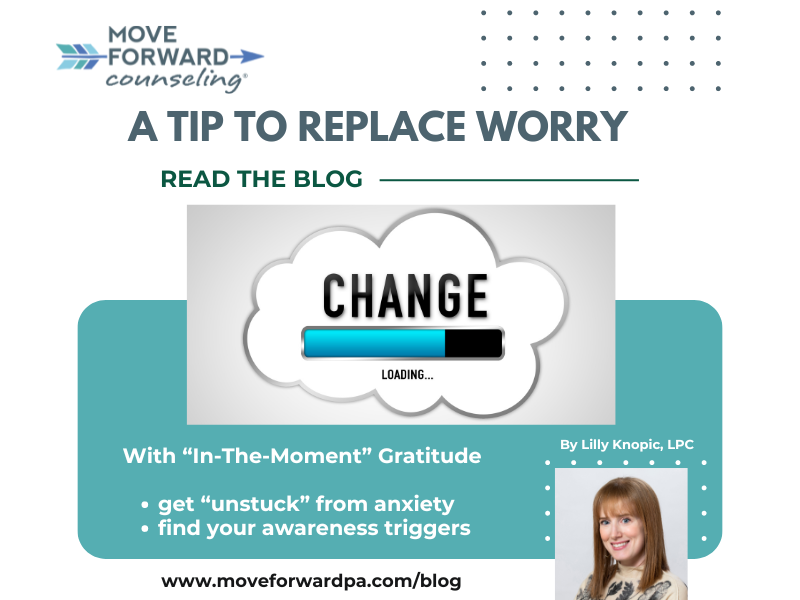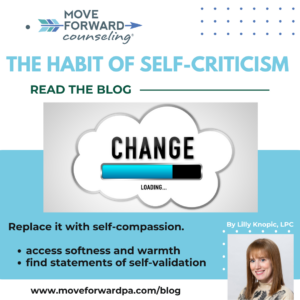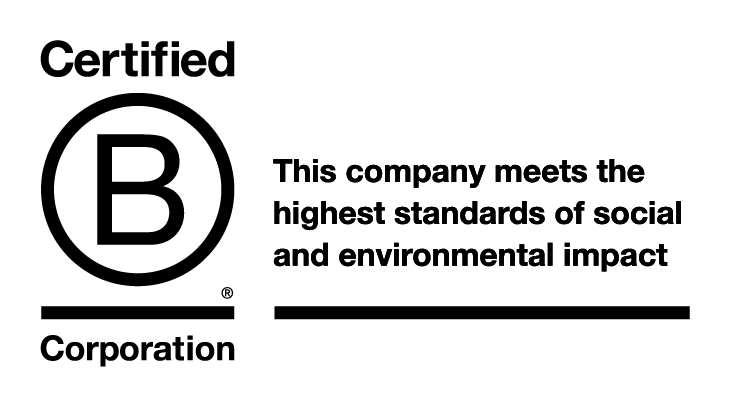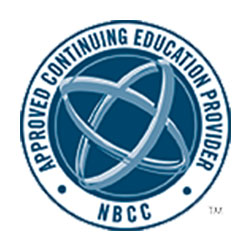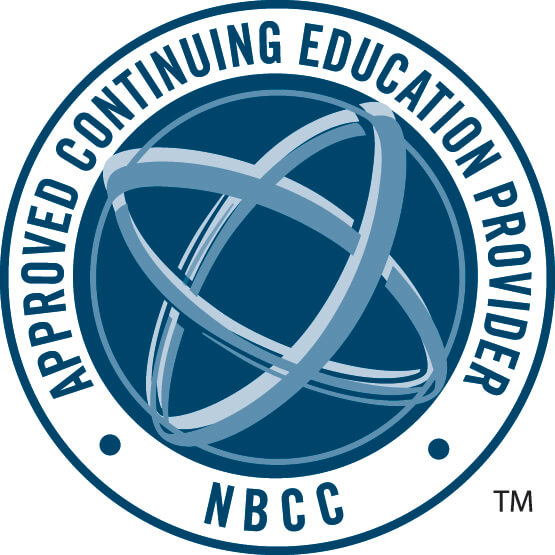Written by Lilly Knopic, LPC (she/her), MFC Therapist
A Mental Habit You Can Practice Today Using ACT and DBT-inspired Perspectives
What is change?
When we think about the word “change,” we often think of an outward behavior or habit, such as drinking more water, reaching out to a friend, or walking more frequently. Did you know that our thoughts are considered behaviors and habits, too? One of the most impactful pieces towards improved emotion management was noticing how my thoughts (“thinking habits”) impacted my mood and emotions. I learned it was important not to trust all thoughts and that my thoughts could increase the intensity of an unwanted emotion. Maybe that emotion fit the facts of the situation and made sense, but my self-pity or “inner critic” exacerbated that emotion and made an uncomfortable situation even worse. In this blog, I share one of my preferred ideas and strategies for increasing your psychological flexibility and the ability to “walk the middle path” in your emotional states with new thinking habits.
Replace Worry with “In-The-Moment” Gratitude
Worrying and/or thoughts-wandering are mind habits that can be replaced by “in-the-moment gratitude; worry and wandering keep us stuck in anxiety (Hill, 2021-present). The idea is to be present with gratitude daily, especially during judgmental thinking or worrying. Perhaps you’ve heard about implementing a gratitude journal, which is one example of how to track gratitude. I highly recommend gratitude journals and use one myself. Yet I also understand it can feel like another task or chore in an already busy day.
The Value of Gratitude
It can also lose its value over time if we forget the “why.” Gratitude is not “toxic positivity” but rather an acknowledgment. Make gratitude the “and” in a stressful or painful moment. It is also a great way to practice dialectical thinking.
Example: “I woke up today overwhelmed with this anxiety, AND I’m grateful for this moment to watch the sunrise with my coffee in peace.”
This mental habit is a variation of making a gratitude list, which is made as a thinking strategy. It is a way to capture self-talk or an affirmation. It involves:
- first noticing that you are worrying or your mind is busy, and then
- bring your attention to the present and see something you feel grateful for at this moment.
Ideas for Creating a New Habit for Gratitude
How you create this habit is in the action of accessing gratitude itself, but here are a few ideas on how to reinforce this habit:
- Notice your cues for worry: Are you dreading the future? Thinking about uncertainty? Trying to find certainty? Trying to find control?
- Don’t conflate worrying with problem-solving. Start here with noticing.
- Create an “awareness trigger” for your gratitude practice or for being present. This can be a timer on your phone that goes off during the day, for example, every time you get an email or when you see the color yellow. Use this “awareness trigger” as a reminder to practice this skill.
If you’ve made it this far, you have completed a committed action to improve the management of your emotions. If you notice that these strategies feel difficult, it’s because any change is difficult. At the same time, smaller and more subtle changes often feel more attainable and ultimately reinforce more helpful pathways in the brain. The present moment is the only time you can change a behavior, so start noticing.
Learn more about ACT and DBT, chat with scheduling (during business hours), or book ACT or DBT therapy with one of Move Forward Counseling, LLC’s trained therapists, including Lilly Knopic, LPC, for DBT-informed skills.
The Habit of Self-Criticism is one of three MFC articles focused on increasing your psychological flexibility and ‘walking the middle line’ of emotions.
Read the related Move Forward Counseling BLOGS
Dialectical Thinking: The “D” in DBT
Resources for this article.
- This article is inspired by the Wise Effort Podcast by ACT expert Dr. Diana Hill (S5 E86; Five Mental Habits That Will Make Your Life Better): Hill, Diana (Host). (2021-present). Wise Effort Podcast [Audio podcast].
- DBT concepts adapted from DBT Skills Training Handouts and Worksheets, Second Edition by Marsha M. Linehan (2015).

